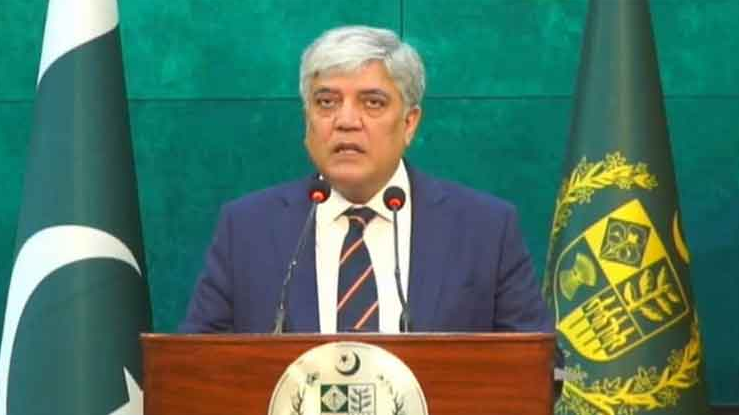Islamabad pushes back against Delhi’s claims over Kashmir attack, warns against political exploitation of conflict
In a sharp diplomatic rebuttal, Pakistan has dismissed fresh allegations made by India’s Home Minister Amit Shah, who this week told the Indian Parliament that Islamabad was behind a deadly April militant attack in Kashmir. The accusations, which came just ahead of a heated Lok Sabha session, have been described by Pakistan as “provocative” and “politically motivated.”
India’s Parliament Claims Spark New Round of Accusations
During his address, Shah alleged that the April shooting—where gunmen targeted tourists in Pahalgam, killing 26—had “clear Pakistani involvement.” He also announced that Indian forces had eliminated the attackers in a subsequent operation dubbed “Operation Sindoor,” asserting that the militants’ deaths proved India’s swift retaliation.
India and Pakistan briefly went to war in May following the Kashmir attack, marking another flashpoint in their long-running hostilities over the region. However, Shah’s statement made no mention of concrete evidence linking Islamabad to the assault—a point Pakistan has repeatedly seized upon to question the credibility of New Delhi’s narrative.
Pakistan Accuses India of Political Dramatization
Responding during a press briefing in Islamabad, Foreign Office spokesperson Shafqat Ali Khan condemned Shah’s remarks, accusing Indian leaders of manipulating the narrative for political leverage during domestic parliamentary debates.
“These aren’t just baseless allegations—they’re a deliberate distortion of facts,” Khan said. “Is it a coincidence that the so-called perpetrators were eliminated just as Parliament opened debate on a sensitive topic? Or is this part of a scripted political performance?”
Khan emphasized that Pakistan had consistently called for an impartial, international investigation into the attack, pointing out that India had refused such cooperation. He further accused Indian officials of inflating military successes while concealing setbacks, particularly in the brief border clashes that followed.
Narrative War Overshadows Strategic Realities
While Shah painted “Operation Sindoor” as a success, Pakistan offered a starkly different version of events, claiming its military had effectively neutralized several Indian assets and prevented any long-term strategic gains for New Delhi.
Khan also rejected India’s claims of being threatened with “nuclear blackmail,” calling it a diversionary tactic aimed at justifying aggressive posturing and distracting from internal failures. “This is not just disinformation—it’s dangerous brinkmanship,” he warned.
Escalation Risks Continue in Kashmir
The latest rhetorical exchange underscores the persistent volatility surrounding Kashmir, a territory both nations claim in full but govern in parts. Since 1947, India and Pakistan have fought four wars, with Kashmir remaining the core source of contention.
Analysts warn that as long as political leadership in both countries continues to frame conflict through nationalistic lenses, diplomatic de-escalation will remain elusive. With elections looming in both capitals, observers fear that military narratives could once again become political tools—further raising the stakes in one of the world’s most volatile regions.

